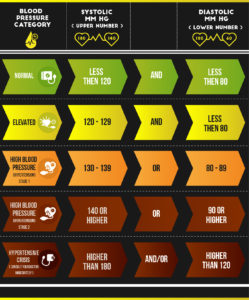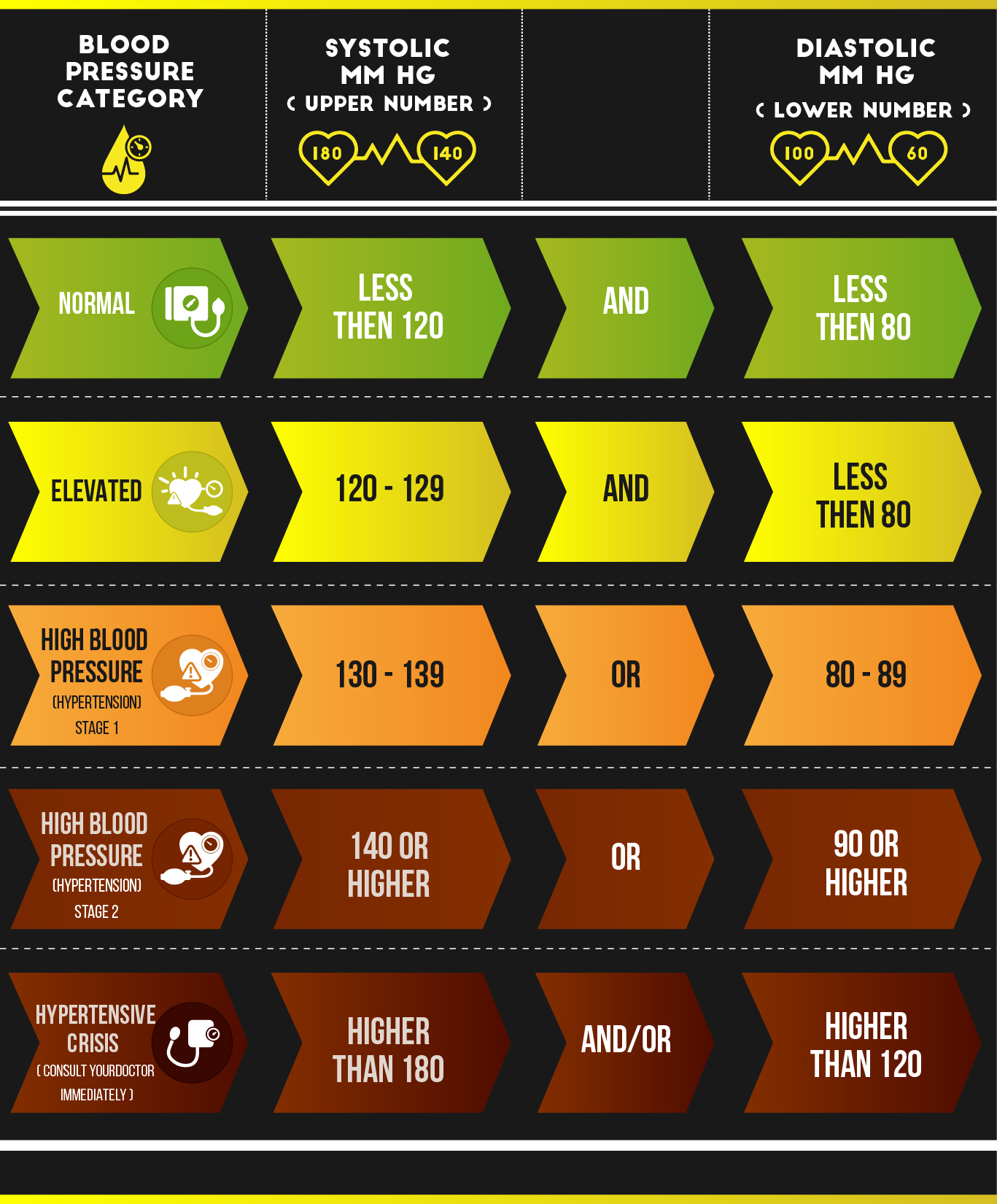For some individuals, blood pressure control is a challenge. Studies show that most people do not have their blood pressure within the normal range even though they take blood pressure medication. One reason can be due to the recent changes made by the American Heart Association. With the new changes more and more people are being diagnosed with elevated blood pressure or high blood pressure.
This means they are also required to start taking medications as well and make adjustment to their lifestyle such as being more active.
It can be very frustrating that you are doing all the right but even with three blood pressure medication your blood pressure remains elevated. There might be a good explanation that can be easily corrected. Continue reading to find out what might be preventing you from reaching your blood pressure goals.
Blood Pressure Range

Back in 2017 AHA decrease the ranges for blood pressure. The new normal blood pressure is a systolic blood pressure of less than 120 and diastolic blood pressure less than 80. Some experts say this is too low. But as of now, they have not changed their recommendation.
It can take up to 3 medication to meet this new goal. But it is worth every effort. High blood pressure kills and disables individuals. It is the leading causes of stroke and the leading cause of cardiovascular-related death.
Whatever steps you can take to diminish your risk of developing complication from high blood pressure, take it and take it now. Not later.
It does not have to be major changes. Small changes here and there can make a big difference. All your small incremental efforts will lead to success.
Too Much of a Good Thing
Besides lifestyle modification and taking your prescribed blood pressure medication another way you can help control your blood pressure is by examining some of you other recreational habits that might be interfering with you reaching your target blood pressure.
Many of the substances that we indulge in on a regular basis can be harmful to us. We know recreational drugs and alcohol is bad for us, but too much coffee can also be bad for your blood pressure causing it to be worse. This can make it seems like the blood pressure medications are not working.
Do you drink coffee every day? How much coffee do you drink daily? Do you know how much caffeine is in a cup of coffee? You should keep track of this information. Cut back on the amount of coffee you drink and see what happens to your blood pressure.
Also, some prescribe medication might also be affecting your blood pressure. What’s good for the goose is not always good for the gander.
The goal of this post is to bring awareness and make you think about the possible causes of your persistent high blood pressure. Put your detective hat on and start investing your habits.
However, do not stop taking your medication without first talking to your doctor.
Even if you do not have any of the risk factors associated with high blood pressure, this information may still apply to you.
Prescribe Medications that Increases Blood Pressure
✔ Systemic corticosteroids – This class of prescription medication is used to treat autoimmune conditions, inflammatory conditions, and sometimes allergic reaction. Some examples are prednisone, prednisolone, methylprednisolone, dexamethasone, or fludrocortisone.
✔ Ketoconazole – This class of medication is used to treat fungal skin infections. An example is Nioral.
✔ Erythropoietin -This class of prescription medication is used to treat anemia. An example is Procrit or Epogen.
✔ Antiemetics -This class of medication is used to treat nausea. Examples are Reglan and Litican
✔ Angiogenesis inhibitors – This class of medication is prescribed by physician to shrink tumors. An example is bevacizumab.
✔ Tyrosine kinase inhibitors – This class of medication also fights tumors. Two examples are Sunitinib and sorafenib.
✔ Immunosuppressants – This class of prescribed medication is used to suppress the immune system and is given to post organ transplant patient. It can also be used to treat Rheumatoid Arthritis. An example is a cyclosporine.
✔ NSAIDs – This class of the drug can be purchased with or without a prescription. It can be used to treat pain, fever or prevent a blood clot. Nonprescription examples are aspirin, and Ibuprofen. Prescription option is Celebrex.
✔ Antidepressants – This class of medication is prescribed to treat depression. Examples are Monoamine oxidase inhibitors (Marplan) and Tricyclic Antidepressants (Doxepin)
✔ Oral contraceptives – this class of medication is prescribed to women to prevent pregnancy.
✔ Atypical antipsychotics -This class of medication is used to treat psychosis. Examples are Clozapine and Olanzapine.
✔ Amphetamines – Conditions like ADHD and narcolepsy are often treated by amphetamines such as dextroamphetamine, methylphenidate or dextroamphetamine.
The items listed in this category can be elimated without discussing with your doctor. Furthermore, none will not improve your health so why not just stop consuming it .But if you must continue, a few have substitution. For instance , instead of drinking regular cofee drink decaf.
✔ Recreational drugs – This class of drug is used recreationally and strictly for fun. Examples are MDPV which is known as bath salts, methamphetamine, and cocaine.
✔ Caffeine – This substance is found in coffee, tea and chocolate. Amount over 300mg /day can cause high blood pressure.
✔ Alcohol – This substance is also consumed socially and found in beer, wine, rum.
✔ Herbal supplements – This substance can be plant or herb based and found in many foods, drinks and pills Example Ma Huang, St John’s Worth.
✔ Decongestants – These substances can be purchased without a prescription and are used to treat sinus congestion. Examples are pseudoephedrine and phenylephrine
Always keep a current medication list of all prescription, over the counter and herbal supplements and make it available to your doctor.
As for the non-prescribed substance, avoid the ones that might potentially increase your blood pressure. For instance, if you have a cold or sinus problems ask the pharmacist about other options that are available to help alleviate your symptoms.
